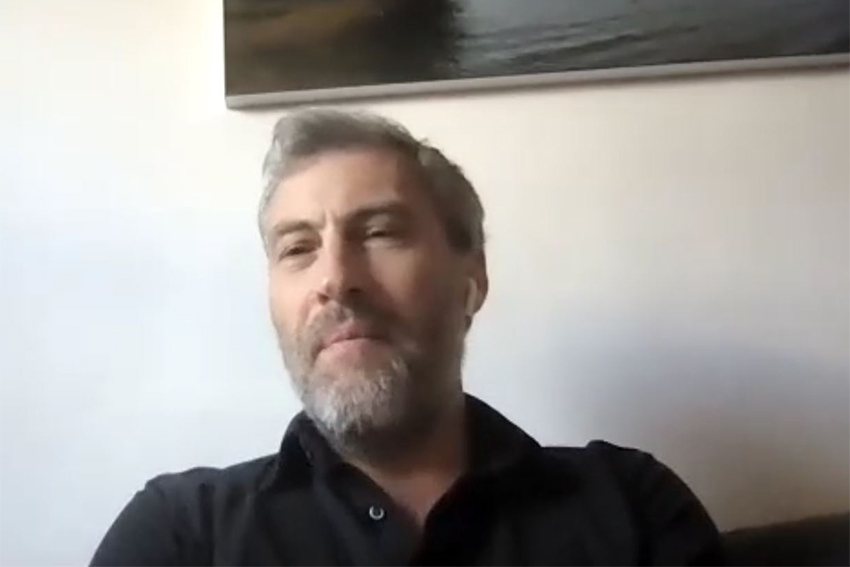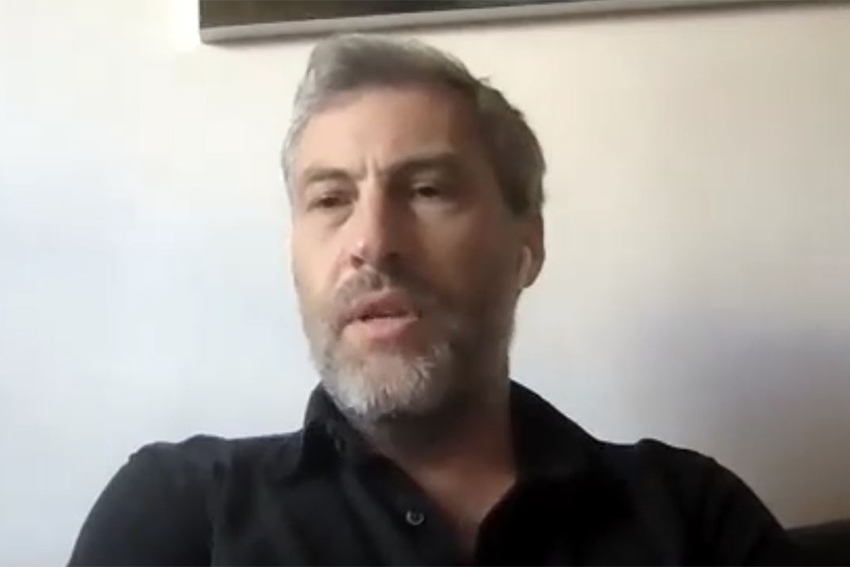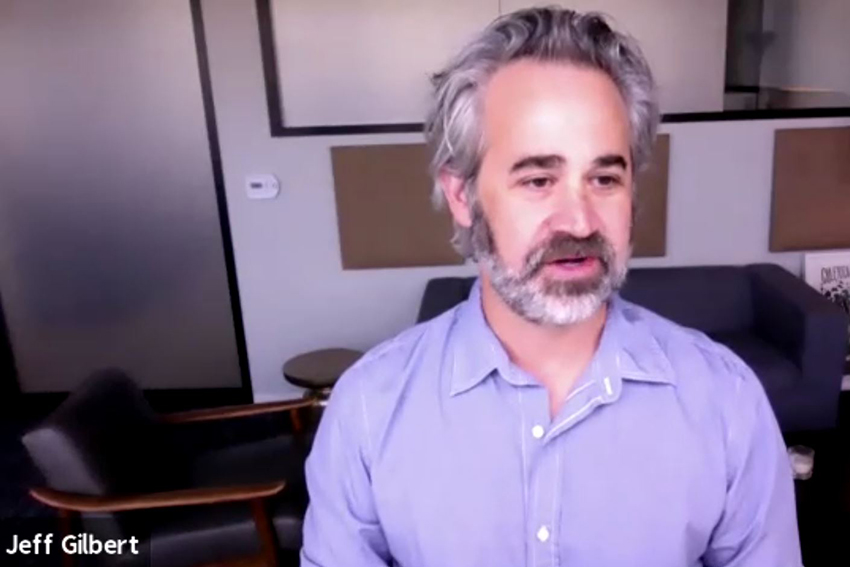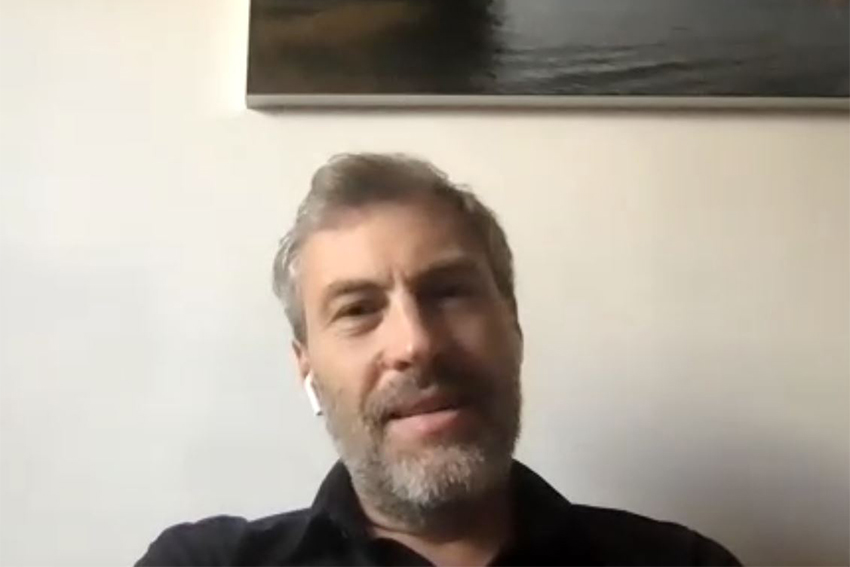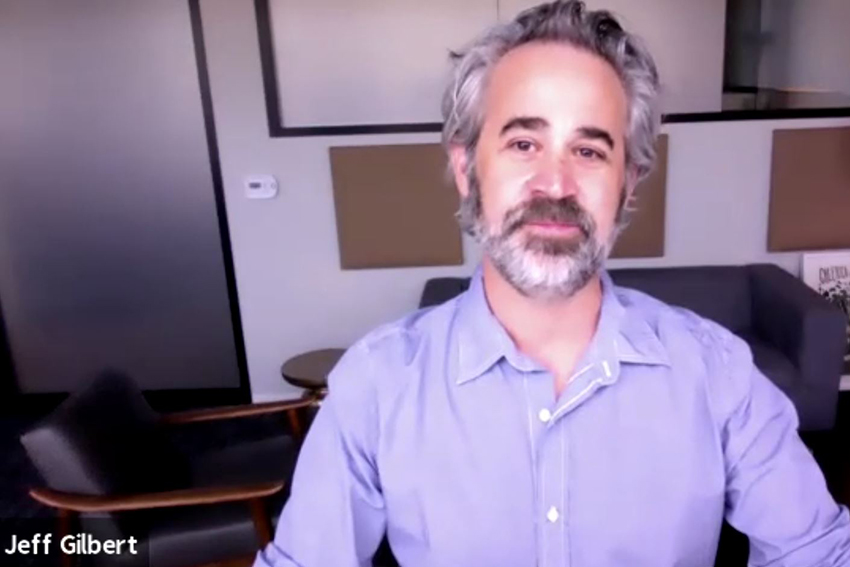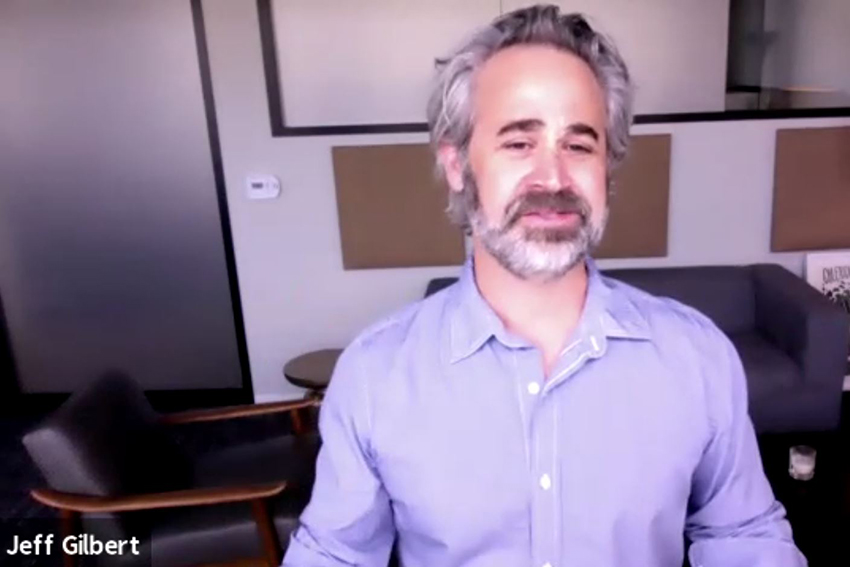AppleTV+ - Boys State : virtual press conference with Thorsten Thielow and Jeff Gilbert
By Mulder, Zoom Event, 19 january 2021
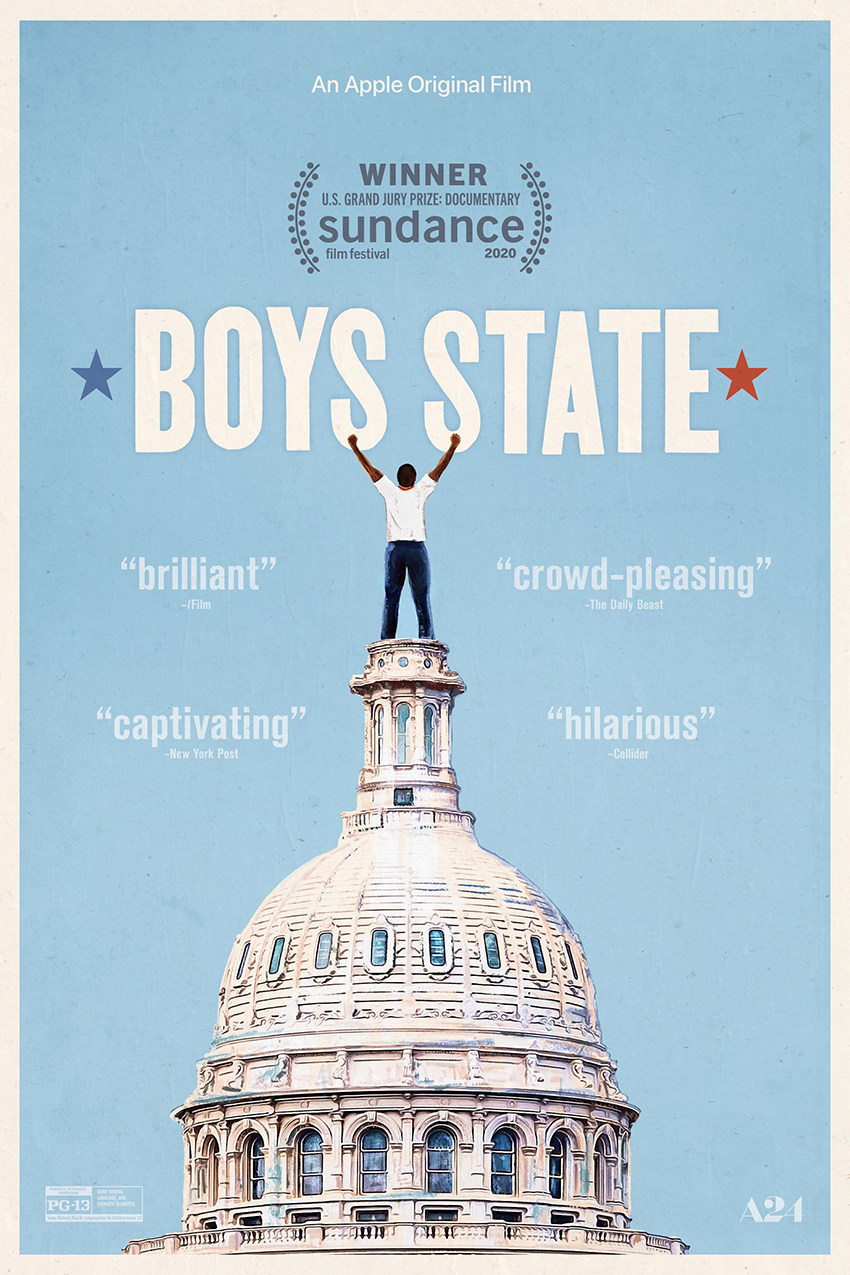
Boys State is a 2020 American documentary film, directed, and produced by Jesse Moss and Amanda McBaine. It follows a thousand teenage boys attending Boys/Girls State in Texas, coming to build a representative government from the ground up. It had its world premiere at the Sundance Film Festival on January 24, 2020, where the film won the U.S. Documentary Competition Grand Jury Prize. It was released on Apple TV+ on August 14, 2020, by A24 and Apple. We were present today at a virtual press conference with Thorsten Thielow (Cinematographer) and Jeff Gilbert (Editor).
Q : Hello, Thorsten , you have worked on a great documentaries as Robin Williams: Come Inside My Mind an recently Ariana Grande: Excuse Me, I Love You. What can you tell us about your studies to become a such great documentaries cinematographer ?
Thorsten Thielow : thanks for the question, I’m sorry maybe i didn't understand it quite what do you want to know exactly how did i become a cinematographer like this… So, I started very young i ran away from school and from home when i was 16 because i knew i wanted to make films I had somebody from actually the german ARF which is the german organization the 70s some somebody in the publicity company publicity team had and all an old camera they gave it to me and i knew i wanted to make documentaries and then the person i learned with he said to me you have to edit first and so i started editing and i edit about for 10 years documentary features and then gradually started shooting documentaries and i think what i need to say is that a lot of my early career was a news and i traveled a lot for news like for French european ARTE so that sort of informed a lot of how I see the world and i've seen a lot and been in many situations and i think shaped me as a artist and how i observe the world.
Q : i thoroughly enjoyed watching Boys state i actually watch it twice it's very engaging and riveting i would like to start with a fun question upon learning that Barack Obama considered your film as one of his favorite for 2020 what was the state of your heart when you learned that
Jeff Gilbert : Sure, thanks for pointing that out. I mean it was it was about as flattering as it as it could be personally to have Barack Obama single the film out and i think it points to the importance and the relevance of what's underneath the entertaining story at this time which is the fragile state of our democracy and the boys stay program offering a forum for people to come together and try to cross the divide and find some sort of dialogue that can perhaps spark some sort of productivity on a personal level just the idea of President Obama and first Lady Michelle Obama sitting down with their family and watching the film was heartwarming and something that I shared with my family and friends immediately greater
https://mulderville.net/images/AppleTVPlus/BoysState/BoysState_PJ_003.JPG
Q : I was very impressed by the film. I've got a cinematography question and editing question. A good friend of mine John Feege is based in Austin and has done a lot of documentary cinematography he's now teaching at the university of Buffalo but what i wanted to find out was how did you negotiate and arrange the different setups in the Texas state Capitol. i've taught it I’m quite familiar with it there's a you have some of course of the you know the sessions in the legislative rooms and then they're all the kind of behind the scenes kinds of things so i wonder how you negotiated to get the kind of access you needed to get those shots and on the editing side I’m just wondering how much footage was shot totally i don't know maybe a couple hundred hours i mean the kind of access you had and then how you decided what to include in the final in the final film i mean that's how he's a kind of a state-of-the-art decision to try to take from all of that different footage i mean i remember seeing Jess Moss's earlier film the overnighters at Sundance so I’m kind of curious about that so for cinematography the setups in the state capital and for editing how you chose the images from the total footage that was shot yeah so how we got the access would be a good question for Jesse and Amanda
Thorsten Thielow : I know that early on we got we started talking to the Texas boys state organization and I gave us incredible access which they really embraced us being there they wanted this to be documented and they received us with open arms and i know a man i did a lot of work to make that all happen legally and then later with the kids
Q : that was with the legion i guess
Thorsten Thielow : right that was with the legion exactly first of course
Q : this the capital building is where i think guess we're all aware that capitol buildings now could be not the same place to be
Thorsten Thielow : that is right that's right recent events show that no but through the organization we had full access and you know there was a whole team of from the American legions down there that would support us and help us with whatever access we needed and you can see it in the film, the film is what it is because we had this amazing access we could be on the stage we could be on the gallery we could walk around the capitol that is something that in real life politics you would never get right you would be somewhere far off on a press riser if you get lucky
Q : Did you ask for clearances from the participants ?
Thorsten Thielow : so that's really a question for Jesse and Amanda i think all participants had to sign a waiver that sort of was part of the deal with cut participating but I don't know exactly the technicalities of how that worked
Q : because sometimes with like private conversations
Jeff Gilbert : i'll jump in and just sort of talk broadly about how to distill down 300 plus hours of footage which I think is more hours than there are in the week itself but Sorson and his whole team were shooting with multiple cameras so some of the footage was redundant at times and that there was coverage of a given scene with multiple cameras but a lot of them were um were broken out by following characters i think in the broadest sense the decision was driven by our characters and sort of sticking with them i think they cast a fairly wide net going in but as the week progressed our characters emerged and became more and more clear so we just followed their storyline which reduced the number of hours on its own to an extent but there was also a lot of there's also a lot of filming done on the sidebar events like the like the state senate material and the other various activities that Thorsten could probably also comment in terms of what was left behind
Q : sort of the follow-up did the protagonist kind of emerge out of the editing process or did the filmmakers already okay we've identified this guy and this guy is key people
Jeff Gilbert : well they identified three of the four main protagonists going in through extensive background research and following those boys in that said they followed a couple other boys as well who didn't progress through the week
Q : so some people ended up on the cutting room floor
Jeff Gilbert : invariably 90 minutes out of you know 300 hours right.
Q: I want to go a little bit deeper into it and that is this process of finding the characters before the actual event how wide a net you throw because you know when it's a spelling b film or any of these various kind of contest films it's not such a large group of people from so you know spread all over the place so I’m curious about that pre-planning and then once there do some of those people wind up not being as interesting as you hoped they would be and are there people who emerge as you're on the floor that you wind up following and i realize that some of this is a director's decision but you guys certainly both were very involved in that .
Thorsten Thielow : yeah so when we finally got the goal from the program to to participate we had only would say like eight maybe ten weeks until the program started and Amanda and really mostly Amanda did an amazing job talking to a lot of the participants it was the first trip Jesse and I were in Texas and we would get a call from Amanda I just spoke to this kid in Houston. you know you need to talk to them and then we would drive to us and we would meet with that kid we would interview them and shoot a little bit of their daily lives and then we get a call go to Austin you have a five o'clock with this kid so it was like we did we did a lot of traveling in those ten days of pre-production and interviewed a lot of kids and then with that material we came back and we cut a sizzle and we sort of liked maybe 10 of the boys and thought they could really be a character and focus in on them and the second part of your question then once we were there we the way we did it was we assigned we sort of we sort of followed six or seven boys intimately and we assigned one shooter one cinematographer to one of the characters some of them we had the cinematographer travel back to their hometown like we sent Daniel one of our shooters back to Steven's house and he would travel with him to back to Austin and so those six sometimes seven and sometimes Jesse picked up the camera himself would essentially never go away they would meet them in the morning put a microphone on them and then stay on them all day and then throughout the week some chef already mentioned some of the kids sort of didn't advance and other characters like Renee emerged and we shifted gears a little bit but some of the key characters like Steven we you know we focused even campaigning before the event started and with Robert too we just we. Amanda did i can stretches and i've did an amazing job casting those kids and then we also got lucky. i hope that answers the question.
Q : i think a lot of people have touched upon the same thing that my initial questions were about which is it's a it was an emerging process you know as characters are sort of coming forward and it's so interesting to hear you talk about the you know the sort of pre-casting of say 10 of the boys but were they was there a character that came kind of as a surprise i like i noticed Eddie didn't have a ton of coverage and yet he won so I’m interested to know about that process
Thorsten Thielow : that's interesting and i'd love for Amanda and Jesse talk to this too but Eddie was not a narrator until deep in and i think once we knew he was probably going far we there was more coverage but i think we never found him that interesting as a person there was sort of a complexity missing and Renee was really the kid that emerged when we heard him speak for the first time when he was running we had goosebumps and he really won over our hearts and he's a complex human and so it was a no-brainer that he would you know and then he advanced very far so Rene was certainly one of those maybe the only real big kid that that sort of emerged while we shot.
Jeff Gilbert : I can talk a little bit about just sort of picking up picking up Eddie and sort of he's an important character in a way to the plot but our other characters are really driving the story forward so he's almost a prophecy of Ben really as we follow Ben through the federalist side of this of the story. i mean editorially it was it was tricky to just sort of figure out how to balance him you know sort of give Eddie his due knowing that we knew in the end that he ultimately wins which is the trick of sort of telling a story about one of the main protagonists who ends up not winning but Eddie was sort of tricky to titrate through the footage because we didn't necessarily have a lot of him from the early days but you need to try to see the idea that there is someone else out there just knowing that he's going to emerge but i think ultimately the priority of the story really in the end with Stephen as a protagonist is to experience his loss with him rather than you know crown the events winner sort of the movie is about more than the event itself in that regard
Q : thank you so much that's so interesting that Renee was the one who emerged because you initially said there were i think three that you were focusing on and then afford the merge so very cool and i love the perspective that you guys chose to tell it from Stephen's advantage.
Jeff Gilbert : Stephen has a real quiet strength about him and a real sort of modest sense of of hope and optimism and belief in the in the system at large so he's a quiet character but really a lot underneath the surface which is which is unique in politics it's not the typical voice that emerges
Q : hello, everyone thank you so a lot of my question has already been asked about how the characters had emerged and how if they were chosen or not and Jeff you kind of touched on the second part of my question a couple times which was basically what work did you guys do to kind of highlight those four individual characters i mean Steve and Rob Renee and Ben like what work did you do to show their individuality and their specific personalities you know you talked about Steven having like kind of like a still quiet personality with a lot beneath the surface and i think that was shown a lot really well in the film and i just would like you guys to talk more about how you showed each individual personality
Jeff Gilbert : well i think that's i think what's one of the strengths of this film this touches back to and doing a great job casting is that these young men bring a lot to the table on their own that you know there's not too much to be embellished and this isn't sort of a feat of some sort of editorial magic here this is letting their voices speak for themselves which serves them well in a public platform like a political like a political event or a political campaign does i think just letting their voices be heard and letting them be authentic was part of the craft and i think setting up these interviews that we try to use sparingly but to give to give you an inside perspective on what they're thinking amidst all the chaos really helps you get a little bit closer to them. Robert in particular has sort of a coming like an awakening, a moral awakening throughout the film and I’m getting to understand their motivations maybe Ben has different motivations than Steven and just sort of hearing them out and letting them authentically come from the place that they're coming from creates intimacy in the character and i think their personalities sort of speak for themselves in that way
Thorsten Thielow : i think this is this is also in in terms of the shooting with something that i'd love to point out is Amanda and Jesse are filmmakers that don't necessarily seek out to tell a specific story and they are really good at embracing the reality as it is and then pick a pick a point of view pick a point from where you observe and let it play out and embrace whatever happens and let the story guide you and i think that that's partly why this film is so gripping is because there was no interference for us we just observed those kids as they navigated this week
Q : These questions are for Thorsten. My first question is how did you assemble your camera team and second question what rules did you have to follow or abide with amongst yourselves in order for you to achieve a similar aesthetic for the film
Thorsten Thielow : totally that was a that was a quite a challenge once you understood that how the scope of the event and how many potential characters we have and also you know worrying about missing moments and missing what's happening we knew that we needed at least six to seven cinematographers and not only cinematographers or just shooters we there was no way chassis and Amanda as directors could be at any given moment in any scene anywhere so we really need people that understand filmmaking that are storytellers themselves and that our experience in verité and so i have been part and funded a small group of cinematographers in New York that sort of specialize in really intimate variety filmmaking and so it's a group of six people that where we worked on films together when we needed each other but we also all worked on especially films that required sort of a self-directed approach where you don't have a director next to you all the time where you follow really intimate moments and so i knew that the people in in my collective in my DP collective were able to do that and are very experienced and wonderful people and not only would be able to self-direct but also had a personality in which they could connect with the subject i knew those people they're warm they are interested they know how to anticipate all these things come in play and you have to have those qualities in order to connect with your subject but then also understand like anticipating what's going to happen next and organizing yourself accordingly and so those qualities that's partly why we funded this group so we could we could exchange jobs and when somebody was had a scheduled in conflict we could sort of seamlessly call the other and say listen I need you to step in and then there was a sort of peace of mind knowing that if i call one of my fellow collective members they would step in and they could just pick up and i could trust them with being respectful with the subjects and understanding all that i just explained, proposed that to Jess and Amanda and they were thrilled they had Amanda specifically had worked with Martina before and they knew of the other members and that's how we came together.
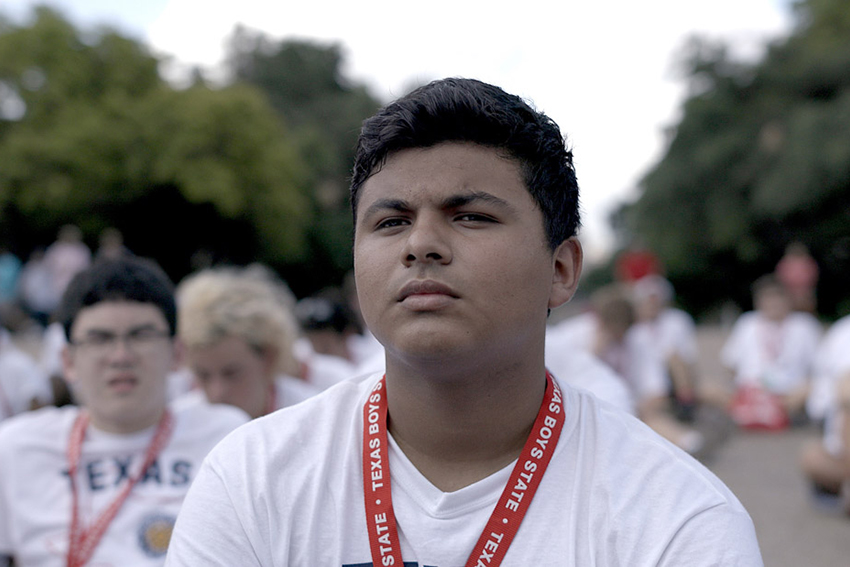
Q : i was noticing different camera techniques you know some a lot of handheld and particularly with the speeches and i felt like it kind of drew me into where i felt like maybe i was almost looking from their lens and i wondered if there were you know certain techniques you could talk about that you utilized to drive the story as well as maybe a moment in the film that you're particularly proud of
Thorsten Thielow : and as you asked that question. I’m realizing i did not answer the second part of the question which is exactly that it's like so that was the sec that was the next concern even though we are such a tight group in our collective and we know each other we're still all individuals and everybody has sort of a you know different style and we hold it some you know everybody has their own way of working and so we wanted to come up with something that where we could be as consistent visually as possible across seven cinematographers which is incredibly hard to do and so we and at the same time we wanted we wanted a visual language that is that feels really intimate we looked at we looked at specifically Jess and Amanda looked at a feature narrative film called son of Saul which follows a an inmate at a concentration camp for a few days and it's a film that is shot very subjective on a on a 40 millimeter lens which is what a prime lens and you sort of experience them and you never really go deep into focus so like a lot of really cool stuff happens out of focus around them but you're always with them always here and we love this perspective sort of be three quarters behind somebody so we feel them it's really their experience and we took that as inspiration and wanted to be the camera to be as honest as it possibly can be and that sort of dictated not having a zoom lens we wanted we wanted the viewer to sort of experience that the camera is right there that the camera is allowed that translate into it translates into an honesty that you can't really achieve with a zoom lens where you could be as on the zoom lens you could be somewhere at the end of the room and you zoom in. It feels more like you're observing something but when you to get a close-up of somebody when you have to really physically be close with them. It's an entirely different feeling and so we decided to give every cinematographer one lens which was a 35 millimeter prime lens and with that nobody was able to zoom we all shot at the same aperture the an F2 so it's pretty wide open and we talked a lot about that specific coverage to be with them rather than looking at them and you see that often just features where we're often even sometimes two cameras one is behind and one is right here and you just you get that that immediate energy from those shots of course it didn't work all the time but i think it works for a lot of it and i think we're I’m pretty happy with visually how coherent it is and obviously Jesse did an amazing job cutting it to what it is now yeah i mean and my personal favorite scene is because it was such an emotional scene when I shot it was with Stephen when he didn't win there was so much beauty in that and i had known him quite well by then and knew sort of the backstory of his complex life he lives at home with his mom and it meant so much for him to get where he got and then see him sort of releasing all this emotion and calling his mom as was for me a really touching moment and we all cried behind the camera. It was one of those really rare documentary moments that you that you where you get reminded this is why I’m doing this .
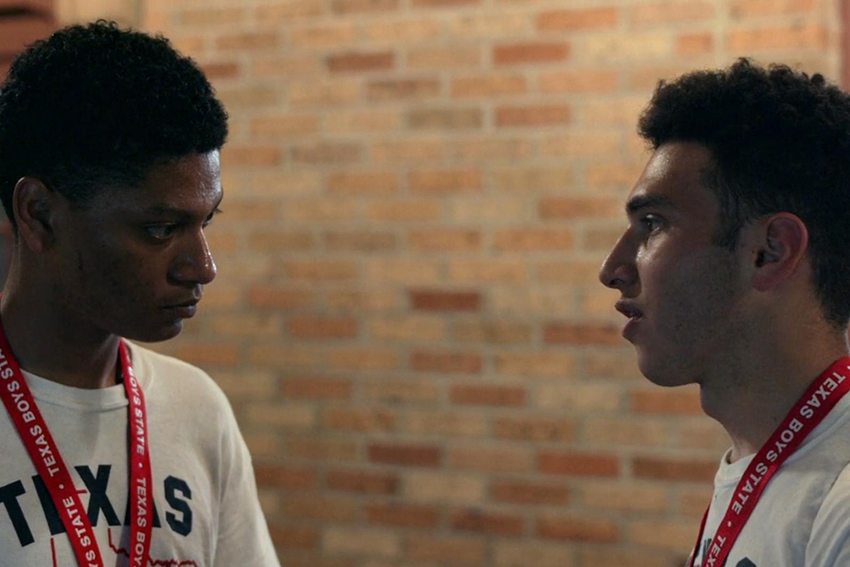
Q : hello Jeff what is what are for you the best actual tools to be a good editor ?
Jeff Gilbert : well i think the tools of writing are the critical rules of being a good documentary editor i see i see editing as an extension of the writing process if not the writing process itself you're just not you're not using words you're using footage so having a good sense of story and a good understanding of human behavior and being tuned into subtext in the way that a writer is by looking at people's reactions you know and having a sense of the experience of any of the subjects in a film and finding the emotional heart i think those are all really foundational and fundamental tools that i try to bring to the craft great.
Q : hi first, congratulations i went to Boys state about 55 years ago in Sacramento California i don't remember it being at all like this and i don't think it was sponsored by the american legion but it's an interesting double feature with what the constitution means to me i don't know if you've seen that but it's an american legion speech contest that a play was developed out of it'd be a perfect double feature with this while sequels are not one of my favorite things it seems that girls state is a natural follow-up and has there been a conversation about that because they do sponsor a girl state, if you can't answer that i have another question.
Jeff Gilbert : i mean, i've heard Jesse and Amanda's speak about their desire to do girls state and follow that program as well i don't know if anything is specifically in the works but it's certainly a lively idea
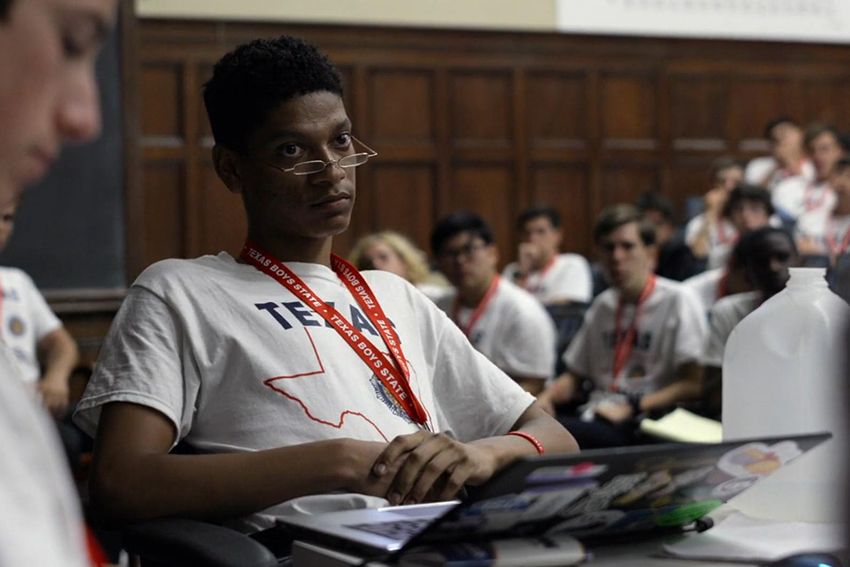
Q : it would just be so interesting to see the contrast
Jeff Gilbert : for sure but if i can ask the other
Q : first you mentioned how intimately you got to know Stephen and so each cinematographer presumably had a varying degree of developing in his relationship with the subject they were following and then you Jeff is the editor having to look at all of those pieces that were brought to you I’m just interested from both of you about your feeling about those friendships if you will or those relationships that you developed as the cinematographers did and then you as the editors trying to choose that and then Thorson when you saw the font and the finished film how you felt about some of the stuff that you wished had been in there or maybe you're perfectly happy with the way it is i mean
Thorsten Thielow : that's the story of my life that's always important it is that's a fascinating conversation to have especially because I spent the first 10 years of my life editing and was on the other side of that. I sort of know both sides i mean i have to say up front the film that that we have now is was beyond my imagination. It's so wonderful and I’m incredibly happy with it but other scenes that i was emotionally attached to where I sat behind the camera crying or with goosebumps or emotionally riled up or touched yes of course and I’m sure and we talked about this actually on the panel with all the cinematographers that we recently did with able cine everybody has those moments everybody has their favorite moment and some of those moments didn't make it into the cut but that's why we have this process and such a wonderful editor you have to let go of those moments and during the editing process I wasn't actively involved but Jesse and Amanda periodically would share cuts with me and like i was able to talk to them and say hey listen like what happened to that scene and they would say well listen we played that scene five times it was in the longer version of the card it wasn't a three hour version it was in a two-hour version and we just had to make space and we had to really go tell the story and get the story to where it needed to be and so well
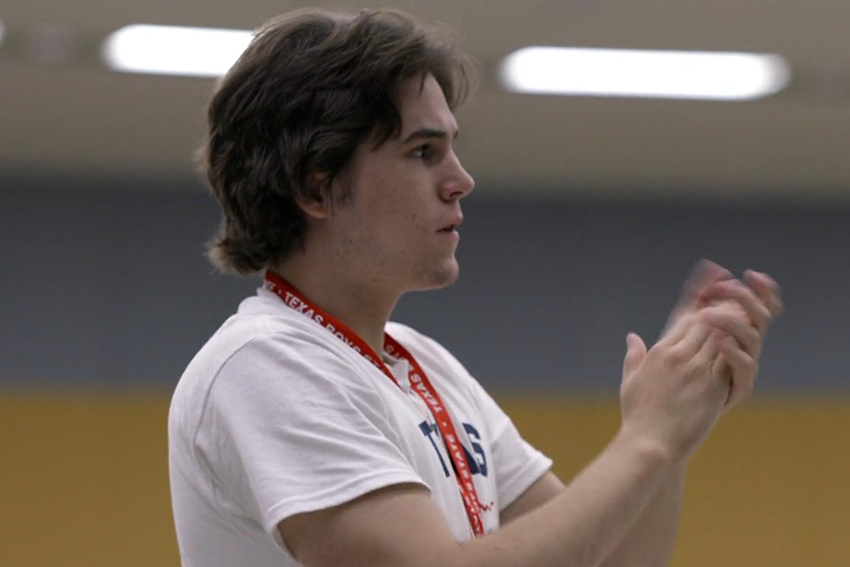
Q : we'll use to say those could all be on the dvd extras but there are fewer if your dvds coming out
Jeff Gilbert : fewer dvds and more and more movies you don't need dvd extras anymore you got Netflix. The question i mean as it relates to relationships obviously Thorsten and his team are creating direct personal relationships and my relationship is with you know the two-dimensional versions of themselves that were captured within that week so it's limited all right i don't really get to know them as people until we meet hopefully at a festival later down the road which is another very strange experience but i formal relationship in as much that I’m in touch with how i feel about their behavior and about what they say and um how Renee inspires me with his speech and Stephen inspires me with his hope and then you know as a character in the film you know infuriated me and scared me and Robert made me laugh i have my own sort of one directional relationship with them they don't know me obviously so it's not really it's not a two-way thing but I’m mindful that you know what you see on screen is just one version and one moment of time in their lives and they're all they're all actually complex rich young men in a lot of different ways so hopefully we represented them honestly but it's also it's a real treat to actually get to know i haven't met all of them but i got to meet ben and Stephen and Renee at Sundance which is always a real treat to sort of flesh out the third dimension which is the actual person while surprising them because i have no idea who i am i've spent a year of my life sort of psychoanalyzing each of them.
Q : Boys state has got lots of real raw and true emotions captured by the different cameras this question these questions are for Jeff first question how did you decide or what was the most difficult cut that you have to make and number two were there any visual effects involved in the final cut of your film.
Jeff Gilbert : no visual effects we enhanced some screens that were a little hard to pick up on the camera we did some visual enhancing but there were no visual effects that i could remember it's wasn't really part of the cinematic language of the film in terms of uh the first question was scenes. What do you mean like seeing that we had to lose or the most difficult thing. you know a lot of i feel like we it was very long it was a very long sort of assembly before i got it i came on after somebody had a pretty large assembly and it was fairly i felt i don't want to say easy but it was it was fairly clear how to sort of take the weight out of the film in just terms of a lot of repetition get it down to these the essence of the characters and the story and so i didn't necessarily there's not anything i don't look back and regret having to lose anything in particular i really I really feel good about the final edit i think the thing that was the most tricky in the process was figuring out how to balance the governor's race the plot if you will with the larger ideas of what these different parties were debating like their policy platforms right so there's the governor's race and then there's the party politics and the two don't necessarily intersect you know in a in a way that like is a cause and effect way so we wanted to keep these big ideas of civil discourse alive and we wanted to know what was being debated and what the kids were interested in terms of policy but it didn't necessarily drive the story forward so I think one of the biggest editorial challenges was sort of how to keep the film as more than just a competition film how to how to make it smart if you will while not losing the momentum of the governor race itself and how to integrate characters like Renee and ben who aren't running at a certain point they're no longer running for an office they're just leading a party and keep them movig into the fabric of the principal storyline i think that was really the biggest challenge and what we went back and forth on adding scenes removing them trying them in different places removing them again you know moving the pieces around was mostly to create that balance.
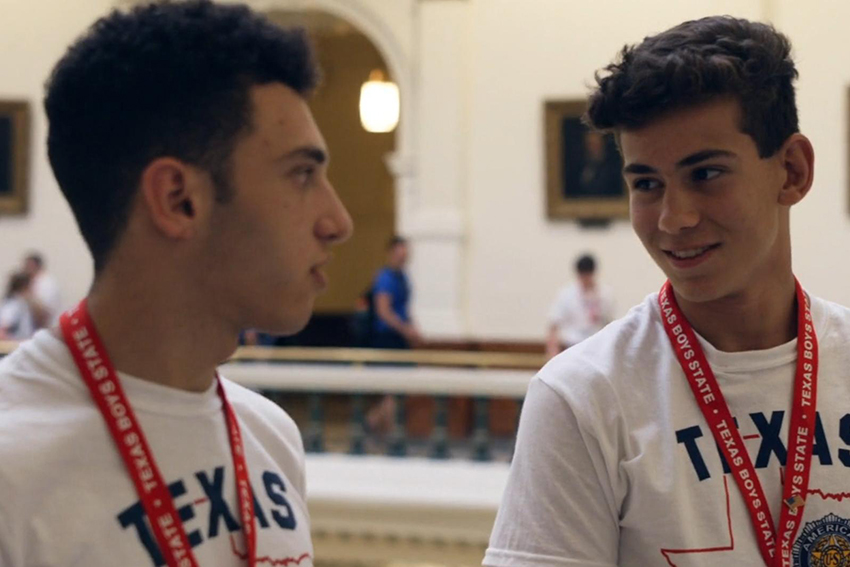
Q : i was wondering about if there were any surprises or challenges that you had to face during the course of filming this is maybe more to be on the cinematography side or where you were able to get what you wanted . I’m just wondering about that how you've met any surprises that came during the course of filming
Thorsten Thielow : i mean what were the surprises you know one of the things we realized very fast there was a steep learning curve sort of in in on the first after the first day it was our idea that we could have one cinematographer assigned to one subject and have camera mic and a lavalier microphone pick up the sound we realized fast that wasn't possible so we had to actually go and find every sound guy all over and women all over Austin because there was a 1200 kids conversations happening in the middle of like a lunchbreak where you had a room full of like 800 kids being loud and rowdy and you still needed to so we that was something that we had to pivot very fast other than that like we i don't think there were any big surprises other than we were just incredibly happy how by the access we had we didn't know until it was actually happening like are they actually going to let us in are they going to shut us out at some point can we be on the stages and it was wonderful to just feel this acceptance like the cameras were there from the first moment and everybody sort of accepted them. Yeah, i can't think of any other big surprises.
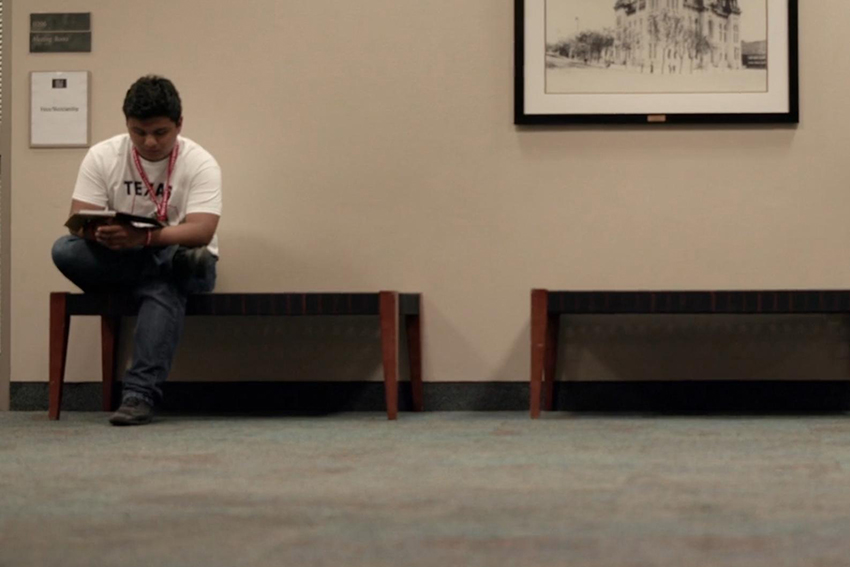
Synopsis :
The film follows a thousand teenage boys attending Boys State in Austin, Texas, coming together to build a representative government from the ground up, from all different political backgrounds, navigating challenges of organizing political parties, consensus, and campaigning for the highest office at Boys State, Governor of Texas.
Boys State
Directed by Jesse Moss, Amanda McBaine
Produced by Amanda McBaine, Jesse Moss
Music by T. Griffin
Cinematography :Thorsten Thielow
Edited by Jeff Seymann Gilbert
Production companies : Concordia Studio, Mile End Films
Distributed by A24, Apple TV+
Release date : January 24, 2020 (Sundance), August 14, 2020 (United States)
Running time : 109 minutes
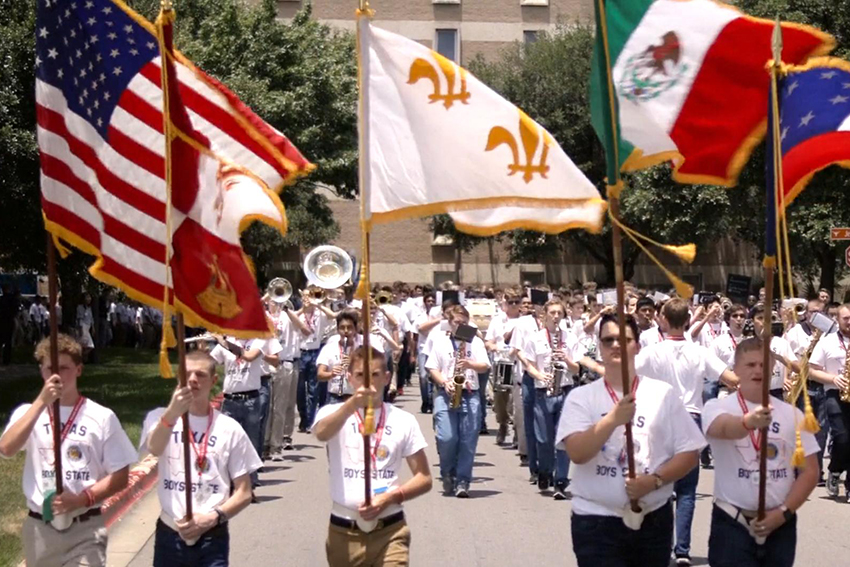
Transcription and work by Boris Colletier and Nicole St John
We would like to thanks Ivy Martinez for invite us to this virtual press conference and the different talents for answered to our questions.
Photos : Copyright A24 / Apple TV+


